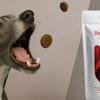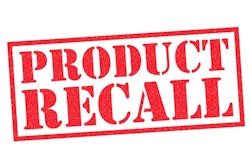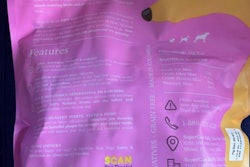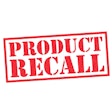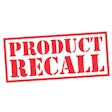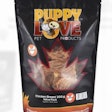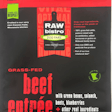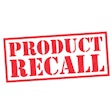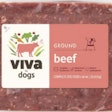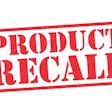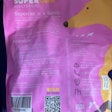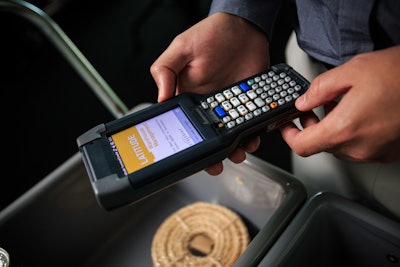
Over the past five years, there have been dozens of pet food recalls in the U.S. Recently, Blue Ridge Beef faced three recalls in two months involving over 7,000 pounds of pet food due to Salmonella concerns. Another pet food manufacturer, Wild Coast, recently faced a recall due to Highly Pathogenic Avian Influenza (HPAI) virus contamination.
With many pet owners treating their pets like part of the family, recalls can trigger strong emotional responses and lead to significant consequences such as regulatory fines, lawsuits, loss of trust and financial penalties. For a pet food company to navigate a recall successfully, it's essential to develop a comprehensive recall plan that includes the company’s entire supply chain, including ingredient suppliers, manufacturers, distributors and retailers.
Recalls could happen at any time, so it’s important your pet food supply chain partners work collaboratively and cooperatively to manage any incidents. Collaborative efforts help protect consumers, brands and all the companies in the chain. A slow or poorly executed recall not only puts pets and their owners at risk but can also damage consumer trust and regulatory relationships.
Collaborative communication
Effective recall management requires what Roger Hancock, CEO of Recall InfoLink, labels a “Recall Ready” community, where all supply chain partners have an integrated recall process. Many companies still rely on outdated communication methods like spreadsheets, emails and phone calls, which slow down response times and create inconsistencies, noted Hancock.
“Companies should adopt a centralized recall management system that enables automated notifications, response documentation, progress tracking and compliance reports,” said Hancock. “Standardizing data-sharing practices across the supply chain ensures that everyone is working from the same accurate information. Designating clear points of contact in advance eliminates confusion and streamlines decision-making when a recall happens.”
Companies that invest in recall preparation will always be better positioned to act quickly. “The first step is to establish a recall plan that clearly defines roles, responsibilities and tracking and escalation procedures,” said Hancock. “This plan should not only cover internal teams but also outline how communication will flow with suppliers, distributors and retailers.”
Hancock’s company, Recall InfoLink, streamlines and accelerates recalls across the supply chain, helping brands become "Recall Ready" through standardized data, collaborative practices and regular recall simulations.
Streamlining recall response: Systems, roles and logistics
Establishing robust systems and clearly defined roles is critical for managing recalls effectively. Companies should create shared systems that allow for quick data gathering, real-time tracking of product movements and swift decision-making across the supply chain.
Integrated technology and standardized data are gamechangers for recall management. Cloud-based platforms automate the recall process, ensuring quick identification and removal of affected products while providing real-time response metrics. Emerging technologies like AI-driven analytics improve risk assessment and traceability, enabling predictive insights and preventing issues before they escalate.
One piece of technology that could help with pet food recalls is a warehouse management system (WMS), which is a software that optimizes all aspects of warehouse operations, from receiving and put-away to picking and shipping. For the pet food industry, this means more efficient inventory management, reduced errors in order fulfillment, and the ability to track and manage stock levels in real time.
“A WMS helps pet food manufacturers with accurate traceability and providing a detailed record of a product's history throughout the supply chain to ensure standards are met while serving as a type of audit trail,” explained Eric Allais, president and CEO of PathGuide Technologies.
For example, a WMS can make it simple for pet food manufacturers to track the country of origin for an ingredient or an expiration date to ensure shelf-life compliance.
“A WMS can offer unparalleled product tracking and traceability,” said Allais. “It can enable a rapid response to pull expired or unsafe products.”
If a product batch is affected by a recall, the product’s assigned lot number allows manufacturers to identify where the specific recalled item is stored, isolate it, and pull it quickly from the warehouse or identify where it’s been shipped or sold if it’s already left the warehouse, said Allais.
During a recall, each stakeholder, from processors to distributors to retailers, must understand their specific responsibilities. Distributors face the challenge of handling information flow and logistics, while retailers must manage large volumes, obtain accurate recall details and coordinate consumer notifications and reverse logistics.
“Another crucial step is to align data-sharing practices and traceability systems across all partners, so that when a recall is initiated, affected products can be identified and removed without delay,” said Hancock. “Pre-written communication templates for internal teams, business partners and consumers also save valuable time when a recall happens.”
Stress-test the recall process
Regular training and simulation exercises can help ensure employees and supply chain partners understand recall protocols and execute them efficiently under pressure.
“Mock recalls are invaluable in stress-testing a company’s recall process because they expose vulnerabilities that might not be obvious until a real incident occurs,” said Hancock. “When executed properly, these simulations reveal gaps in traceability, decision-making, team roles and supply chain communication — all of which are critical to drive action that removes product and protects people and pets.”
Mock recall simulations also help teams identify bottlenecks and refine response times. Companies that conduct routine mock recalls are far better equipped to handle an actual recall with confidence and precision, said Hancock.
“Many companies focus solely on internal drills, but the most effective recall simulations are cross-functional, involving suppliers, distributors and retailers,” he said. “This ensures that data flows smoothly across all levels of the supply chain and that all stakeholders understand their roles.”
Poor recall management can significantly hurt a company's bottom line, making proactive planning essential. Recall ready companies can respond quickly and efficiently – something consumers expect when their pets are at stake.


